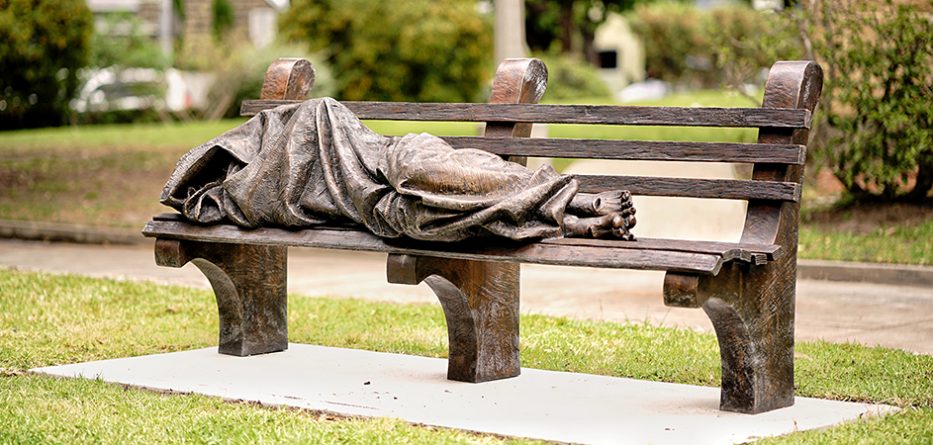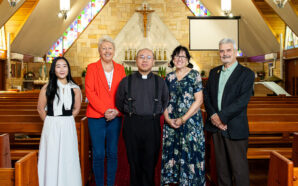5-11 August is National Homelessness Week┬Ā┬Ā
Last year, the theme of National Homeless Week was ŌĆśItŌĆÖs Time to End HomelessnessŌĆÖ. This yearŌĆÖs theme is ŌĆśHomelessness Action NowŌĆÖ.┬Ā The change to a curt and demanding slogan suggests how urgent is the call for action and how intolerable is the present situation. It reminds us how central stable shelter is for human living and presses us to address the current causes of homelessness. Homelessness is not an accident. It is the result of bad economic theory, a culture of greed, and of self-serving politics.
Both homelessness and its destructive effects on human lives have recently received much publicity. Once, to have a home was seen as a right. Now it is seen as a privilege. The price of homes has risen enormously. Only the wealthy and those who inherit houses can hope now to own their own home. Renting has also become more expensive as people compete for fewer houses. In rural areas, people are often priced out of the housing market. More people are forced to sleep in their cars and on the streets. At the same time, however, the houses left unoccupied are more than sufficient to provide a home for all who lack it.
To be homeless is destructive because it cuts human connections. If you have no fixed address you will miss mail, you will find it hard to have things delivered, to have friends and family visit you, and to access government services. You will move often from place to place; your children will change schools, miss friends, and form only passing relationships. Even connections by internet will become more difficult and expensive. With no kitchen, food will be expensive, hospitality impossible; with no laundry or bathroom, it will be hard to maintain hygiene and clean clothing. For such reasons, many people who live precariously see secure housing as their major need. Insecurity contributes to mental illness and to withdrawal from society.
These are the immediate effects of homelessness. Equally significant, however, are its spiritual effects. Left without a home, people are deprived of more than bricks and mortar. They are diminished in their humanity. This can be seen if we look at some of the associations of the word ŌĆśhomeŌĆÖ.
A home is first of all a shelter. It protects us from wind, rain and sun, from wild animals and from robbers. It is a source of security. It also connects us to a place. For Indigenous Australians, home is the particular area of land with its distinctive features to which they belong. For others, it anchors us to fields, a garden, a suburb. Without it we are rootless, wanderers. A home also connects us to neighbours, shops, schools and society. It gives us an address that links us to government and enables us to relate to society. At a deeper level, a stable home connects us with our personal and family history. It links us to earlier homes and to the significant persons and events in our lives. Finally, a home bears the personality of the people who live in it. It is a house whose face comes to be our own.
In a decent society, everyone will have a place to call home. A society that places profit above the common good, distorts economic society in a way that encourages people to see housing as an investment and not as a home, and runs down social housing, is not decent. It will become fractured and alienated. If we are truly to call Australia home, we must ensure that everyone has a home.
Fr Andrew Hamilton SJ writes for Jesuit Communications and Jesuit Social Services.








